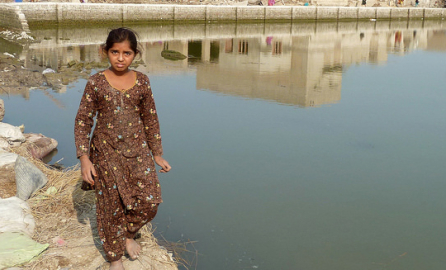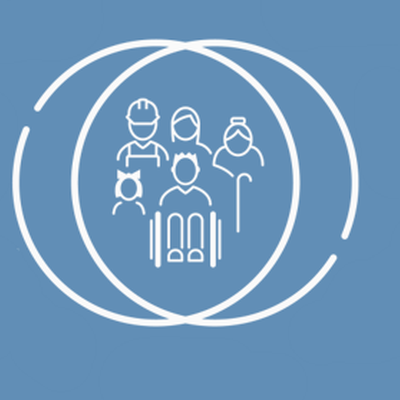After natural disasters a lot of funding goes into the humanitarian response – but it’s an inefficient way of funding what is essentially a chronic problem, according to expert Nicholas Freeland. Panelists from the European Development Days discuss investing in social protection and resilience as a better avenue for the response, and share lessons learned from social protection systems in Malawi and Ghana.
In Malawi, the poverty level sits at around 70% and inequality is rising, along with the birth rate, as the population passes 18 million.
At the same time, EU Ambassador Marchel Gerrmann told a webinar at the 2017 European Development Days in Brussels that natural disasters are “recurrent” and “increasingly predictable.” In 2015, the southeast African nation was hit by the worst flooding in 50 years. Then 2016 brought the most severe drought in 35 years.
After such events, Nicholas Freeland, a consultant with the European Commission’s Advisory Service in Social Transfers (ASIST) who has worked in Malawi, said “An awful lot of funding goes into the humanitarian response, and it’s a very inefficient way of providing the funding for what is essentially a chronic problem.”
“It would be much better to use that funding up front to build better resilience, to have better social protections in place, and thereby to reduce the number of people who require humanitarian assistance when an inevitable shock occurs,” said Freeland.
The webinar, which saw an audience at the EU delegation’s offices in the capital Lilongwe connect with Brussels via video link, was timely. The EU delegation is preparing a new €50 million social policy and resilience programme, the Malawi National Social Support Programme (MNSSP II). This follows a first initiative, funded by the EU, German Development Bank, World Bank and others, which focused on social cash transfers, school meals, public works, village savings and loans, and microfinance.
Nations Msowoya, national authorising officer at the finance ministry, said “In the eyes of Europe, €9 is maybe just a bus fare”, but for Malawians such support means much more. He highlighted the positive impact on consumption, citing people’s ability to get “basic food, afford three meals a day, to buy some school and learning materials for their children.”
Reaching the right people
The design of the new programme has renewed a debate relevant to humanitarian aid and social protection alike: Are those most in need of assistance being helped?
For Montse Pantaleoni, a policy officer from the European Commission’s humanitarian arm, ECHO, the Malawi programme’s quota, targeting the poorest 10% of people in each of the country’s 28 districts, could be problematic.
“Maybe in the capital the 10% is reaching people who are not as vulnerable as those in other areas who have been affected by drought or other situations,” Pantaleoni said.
Montse Pantaleoni on how ECHO is working on social protection; her thoughts on Malawi’s approach; and analysis of different approaches to social protection:
When it comes to how to reach the most vulnerable, Janet Heisey from the anti-poverty group Trickle Up thinks her organisation has part of the answer. The graduation approach works by assigning mentors to work for 24-36 months with people living in extreme poverty to help them turn small cash transfers into a sustainable livelihood.
“With people living in extreme poverty your typical means of finding them are not sufficient,” Heisey said at the European Development Days.
Trickle Up workers assemble a range of community members and draw the village’s main components (such as water sources, roads etc.) on a map. Then they ask about where people live.
“You do poverty wealth ranking where you say to the community, ‘OK, here’s Pablo’s house and this is José’s house – who’s poorer?’” The process is repeated to arrive at four or five categories of wealth that decide who is most eligible for assistance. Heisey said the process is moderated “to ensure there is no domination from any particular character in the community,” and verified to ensure an accurate assessment.
Janet Heisey on the graduation approach; the biggest challenges, and how the coaching system works:
Once the target group has been identified, another challenge is how to ensure the money reaches them, and to prevent fraud.
Ghana has addressed loopholes and corruption in its cash transfer system by migrating from a manual system to an electronic system. Nana Oye Lithur, the former minister responsible for social protection in Ghana, said “You used to get post office workers going into the community with literally sack loads of money to distribute.”
“Now we have the biometrics. It was expensive but we had to go through that process. So we have the biometrics of every beneficiary. So when it’s time to pay… there’s verification and the money is loaded onto their plastic card and they can collect the money as and when.”
Nana Oye Lithur and Ricardo Fuentes Nieva of Oxfam discuss designing Ghana’s social protection system and the main obstacles:
EU Guidance
Such debates come as the European Commission’s development and humanitarian divisions collaborate on a new Guidance, not yet released, on social protection. The document aims to enlist EU humanitarian workers in longer-term development efforts to implement social protection programmes in protracted crises.
ECHO, unlike DEVCO, cannot contribute money directly to foreign governments, and is bound by the humanitarian principles: humanity, neutrality, impartiality and independence.
“There has been quite a lot of intellectualising about the different models for providing shock-responsive social protection,” Freeland said. After a disaster these responses include vertical expansion (“providing more substantial transfers to people who are already part of a programme”), horizontal expansion (“increasing the number of beneficiaries”), piggybacking (“trying to build your humanitarian response on top of an existing programme”) and shadow alignment (developing a humanitarian system in parallel to social protection).
Freeland said what really mattered was designing good systems to monitor what happens to money, register beneficiaries, deliver payments through electronic cash, make people aware of what’s available, and provide channels of appeal against abuse of the system. “All of these things will serve just as usefully in a humanitarian response as they would in your standard social protection,” he said.
Nicholas Freeland on ‘shock responsive’ social protection systems; different ways to boost social protection; the importance of understanding the political economy; and views on forms of welfare payments:
DEVCO is currently working on a Guidance Package on social protection aiming to tackle these issues at the nexus of humanitarian aid and development cooperation. Stay tuned to Capacity4dev for more information.
Image credit: DFID via Creative Commons license 2.0






Log in with your EU Login account to post or comment on the platform.